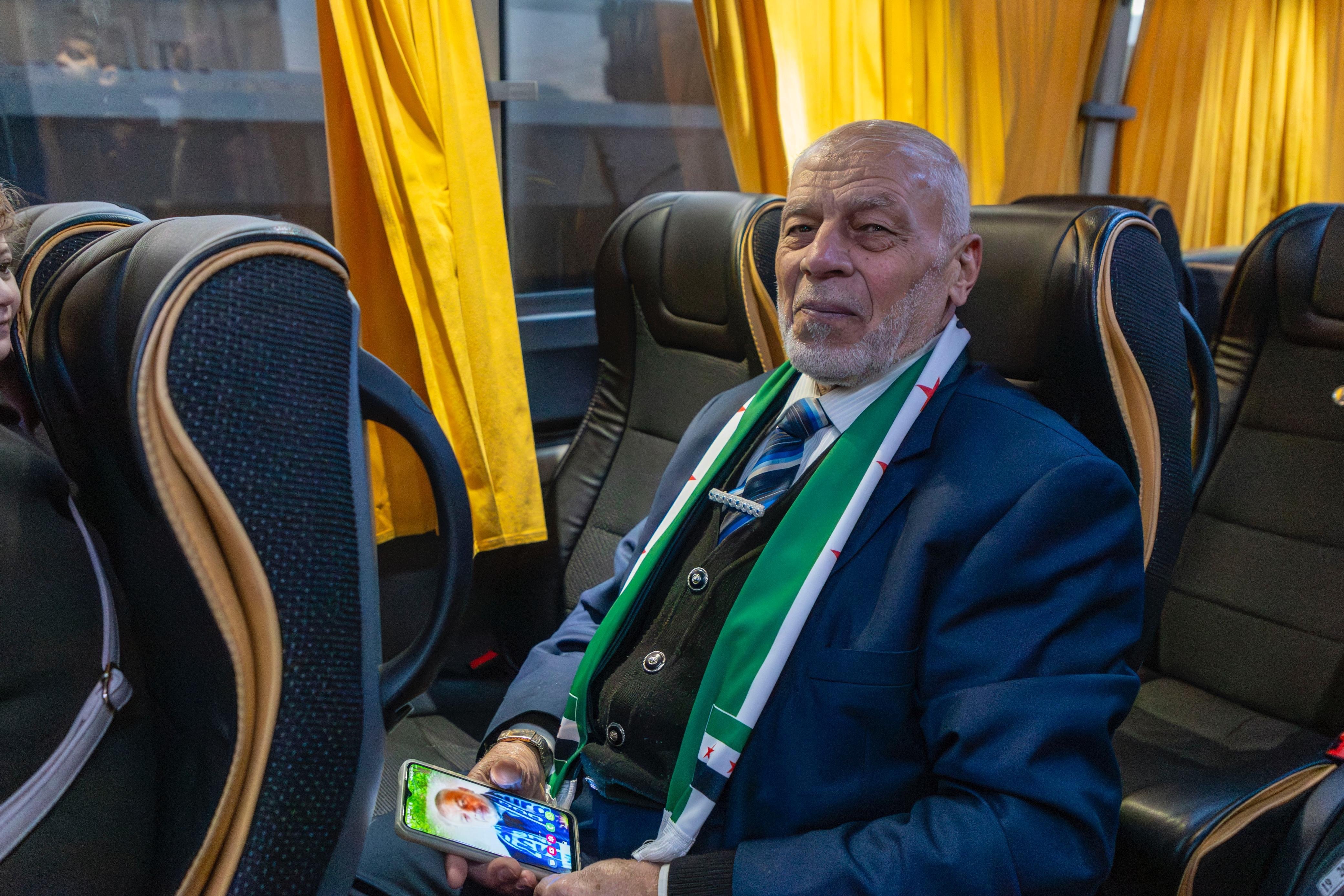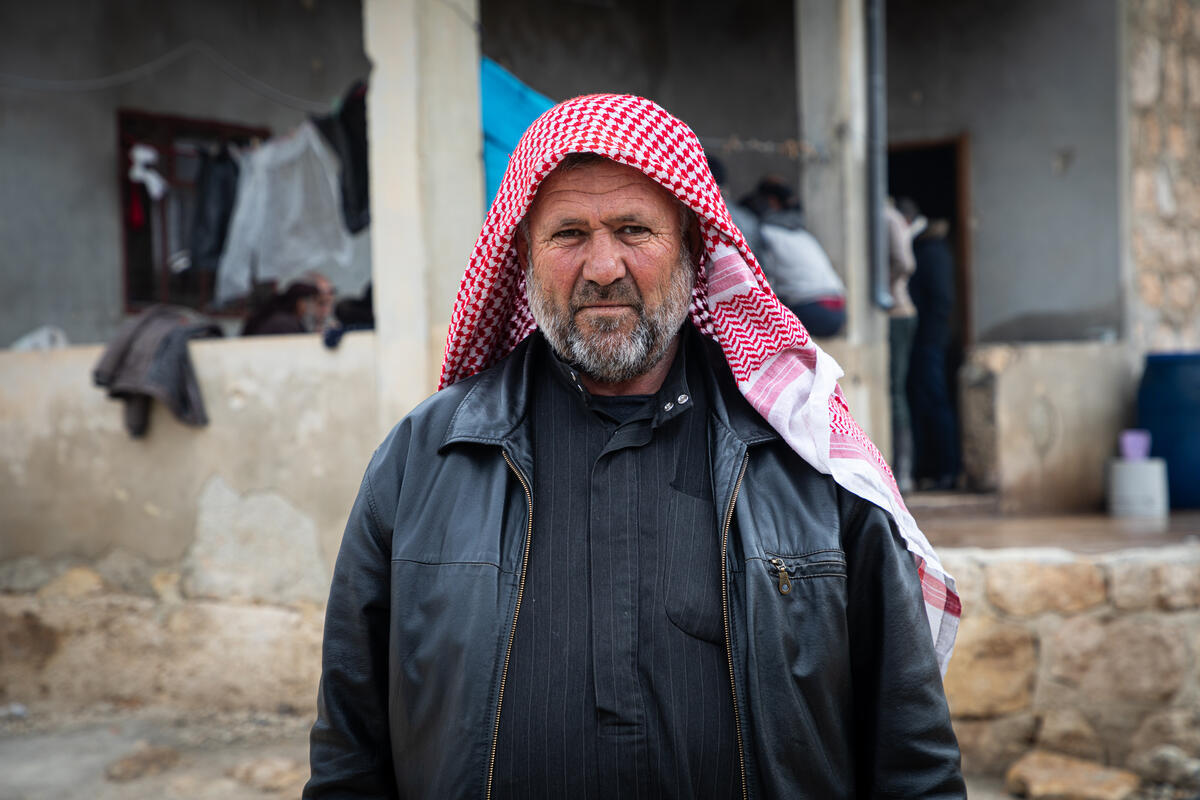Growing shelter pressure in Aleppo for the thousands fleeing
Growing shelter pressure in Aleppo for the thousands fleeing

In Syria’s Aleppo, UNHCR, the UN Refugee Agency, remains extremely concerned for the civilian population. With thousands fleeing the eastern part of the city, our focus has turned to the rapidly growing shelter needs.
Many of those who have fled eastern districts are now in unfinished or partly-destroyed buildings. Unsanitary conditions and overcrowding are already challenges in a congested city with few open spaces.
We have been providing tents, shelter kits and sealing-off kits to meet the most urgent needs and improve living conditions. We are also working with partners to quickly rehabilitate structures as temperatures drop.
Food, water, medical care and other items are being distributed by UNHCR and partners alongside winter clothing and other relief items. We have emergency supplies of non-food items, among them blankets and tents, for 45,000 people in western Aleppo. These can be replenished at short notice.
It is estimated that some 30,000 people have fled just in the last days. In all there are now some 400,000 displaced people in western Aleppo.
In Jibreen, an industrial zone, recent arrivals have joined approximately 55,000 people who had already fled the fighting in recent months. The area has now reached full capacity. A UN inter-agency assessment in Jibreen found that 60-70 per cent of recent arrivals were women and children. Working through partners, a large-scale building rehabilitation has been completed in Jibreen. Further work to boost shelter capacity there will be carried out as buildings are declared safe.
Buildings in the 1070 and Rayiada housing complexes in government-controlled south-western Aleppo, which are unfinished residential areas where displaced people were being housed until August 2016, are heavily damaged. UNHCR had previously upgraded over 5,000 shelters in the 1070 district. Some are now at risk of collapse and work on rehabilitation is underway.
Additional UNHCR protection and shelter staff arrived in western Aleppo on Thursday as part of a UN mission. They will be providing a detailed assessment of the needs of the recently displaced. We are already offering psychological counselling as well as legal, protection, gender-based violence, education and other protection services at 15 community centres in the area and nearby.
Displacement also continues within eastern Aleppo itself, with many having been forced to move several times, according to a survey recently conducted by UNHCR and NGO partners.
Since September, UNHCR has supported 838,092 people in Syria, including Aleppo, with winter items, including thermal blankets, sleeping bags, plastic sheets and clothing.
We are still unable to reach the many thousands without food, water and shelter in eastern Aleppo as temperatures drop and fighting rages. With its UN partners, UNHCR continues to call for an end to the hostilities to allow safe passage out, and humanitarian assistance to be delivered.
Mosul distributions accelerate as displacement rises, temperatures drop
In Iraq, UNHCR has been providing thousands more winter kits this week in newly retaken towns and villages east of Mosul.
Around 3,500 kits, each containing two blankets and two quilts, were distributed in Gogachly; 4,745 were distributed in Nemrud and nearby villages; and nearly 3,500 extra kits will be delivered to families in the area in the coming days. In UNHCR’s Qaymawa camp, accommodating more than 4,611 people, wheelchairs have been distributed and water, sanitation and hygiene facilities suitable for use by people 10,800 people, battery-powered lighting has been installed; the camp still lacks electricity and hot water. Additional winter clothing and kerosene for heating is required.
As of today 77,000 Iraqis have been displaced by the recent fighting in Mosul. Some 3,321 Iraqi refugees have reached Al Hol camp in Syria camp since October 17. The camp currently hosts almost 9,200 people, including displaced Syrians.
For more information on this topic, please contact:
- In Geneva, Matthew Saltmarsh, saltmars@unhcr.org, +41 79 217 31 40
- In Jordan, Scott Craig, craigs@unhcr.org, +962 7 9276 0640








